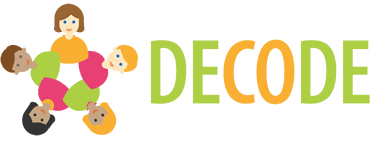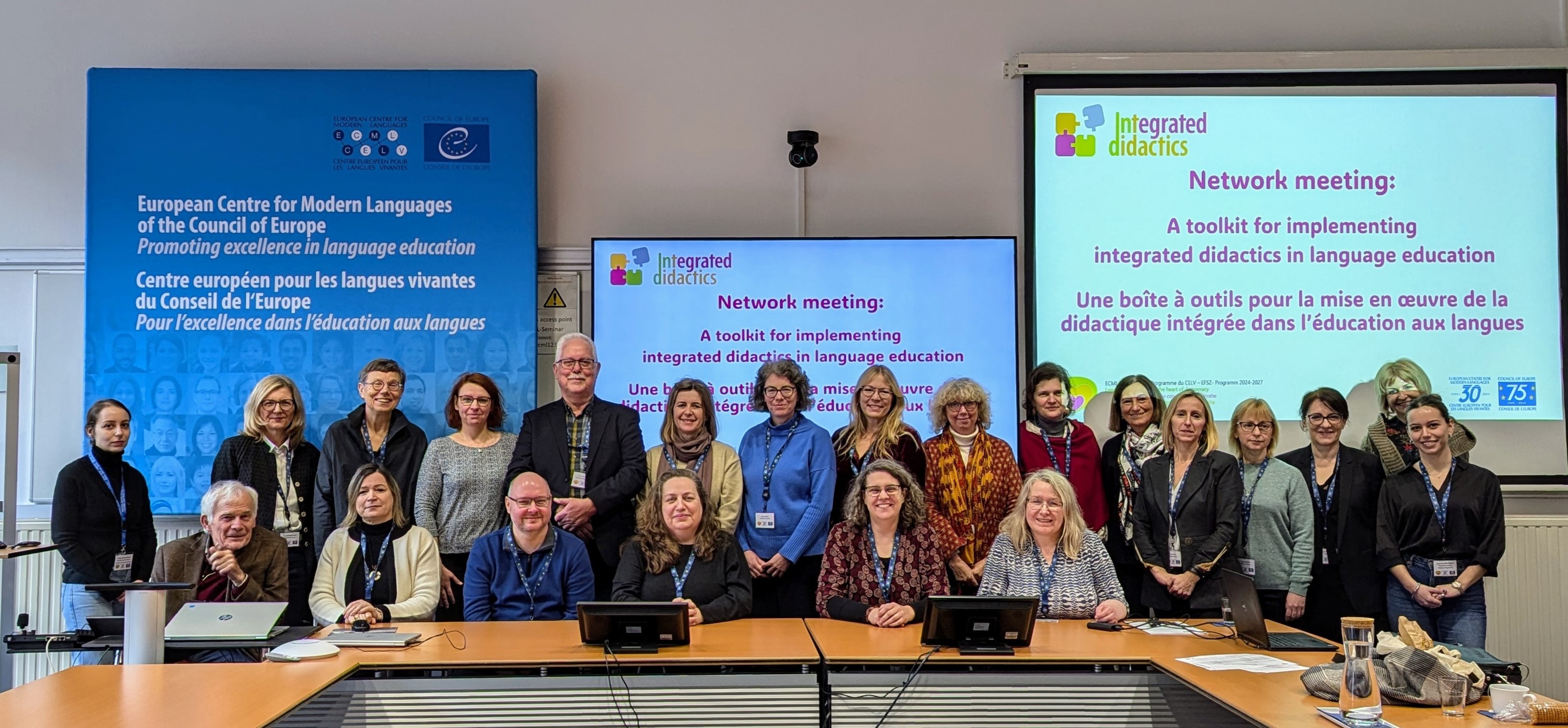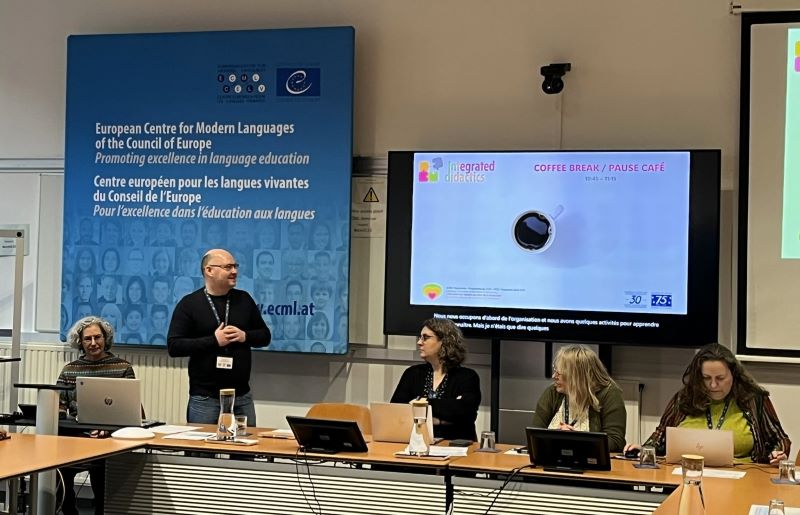Latest news items
19.03.2025
Project launch “Developing competences for democratic culture for young learners through language education” (DECODE)

The aim of the project is the development of materials on competences for democratic culture (CDC) and guidelines for their implementation at the level of primary education, within the Reference Framework of Competences for Democratic Culture (Council of Europe, 2018). At their launch meeting, the project team members developed the first draft of a didactic template for the development of materials on CDC, established the phases for designing the materials on CDC for primary schools, and planned the agenda for the network meeting scheduled in June 2025.
The project team members are: Martina Kramar, project coordinator, Augsburg University, Germany; Manuela Svoboda, University of Rijeka, Croatia; Mai Trang Vu, Umeå University, Sweden; and Emina Jelešković, International
University of Sarajevo, Bosnia and Herzegovina.
The team members met with the ECML representative, Susanna Slivensky, Deputy Executive Director and Head of Programmes. The ECML consultant, Chantal Muller, also joined the expert meeting and provided her feedback on the meeting outputs.
The team discussed and agreed on the next steps of the project, focusing in particular on the activities planned for 2025.
Authors: Emina Jelešković, Mai Trang Vu
- ECML project website “Developing competences for democratic culture for young learners through language education” (2024-26) (available in English and German) : www.ecml.at/decode


24.01.2025
Advancing integrated didactics in language education

2024 saw the launch of the ECML project A toolkit for implementing integrated didactics in language education, which aims to provide educators with structured models and tools to address the linguistic repertoires of the learners in the language classrooms.
Key milestones of the year include the formulation of a definition of integrated didactics, refinement of the project scope for the next three years, and the elaboration of the first draft of the toolkit structure as a framework for the project outputs. A highlight was the network meeting in November, which brought together international experts to discuss the challenges and opportunities of implementing integrated didactics in language education. This event underlined the overall importance of this approach as a core element of plurilingual education.
Among the aspects that have been highlighted so far are the consideration of learners’ full linguistic repertoires as resources for facilitating the learning of a new language and the use of AI as a support for adapting materials to different contexts. Looking to the future, the project team is ready to broaden the impact of integrated didactics and ensure that it responds to the needs of the linguistic and cultural diversity in 21st century classrooms.
Christian Koch, Dolors Masats, Elżbieta Sielanko-Byford, Marie Steffens
• ECML project website “A toolkit for implementing integrated didactics in language education” (2024-27) (available in English and French): www.ecml.at/integrateddidactics
31.12.2024
International experts convene for the network meeting on integrated didactics
The team members of the ECML project on integrated didactics organised their network meeting in Graz on 27-28 November. The programme consultant and a group of 15 teacher educators and researchers from Croatia, the Czech Republic, Finland, France, Germany, Latvia, Norway, Poland, Portugal, Sweden, Switzerland, the Netherlands and Ukraine took part in this two-day event dedicated to discussing views on how to use learners’ linguistic repertoires to improve language teaching and learning.
On the first day, team members introduced and discussed with participants the aims and expected outcomes of the project, which is developing a toolkit for implementing integrated didactics in language education. Participants were also given the floor to present related projects. The second day was dedicated to exchanging perspectives on integrated didactics and exploring future collaboration. Team members led workshops to reflect on how to adapt materials to local contexts (Elżbieta Sielanko-Byford), how to link integrated didactics with migration contexts (Marie Steffens), how to use AI to support integrated didactics (Christian Koch) and how to consider this plurilingual approach from a holistic perspective (Dolors Masats). The meeting provided a valuable platform for the team members to have their proposals examined from different angles, which will undoubtedly be beneficial for the development of the project.
Christian Koch, Dolors Masats, Elżbieta Sielanko-Byford, Marie Steffens
- ECML project website “A toolkit for implementing integrated didactics in language education” (2024-2027): English – French


